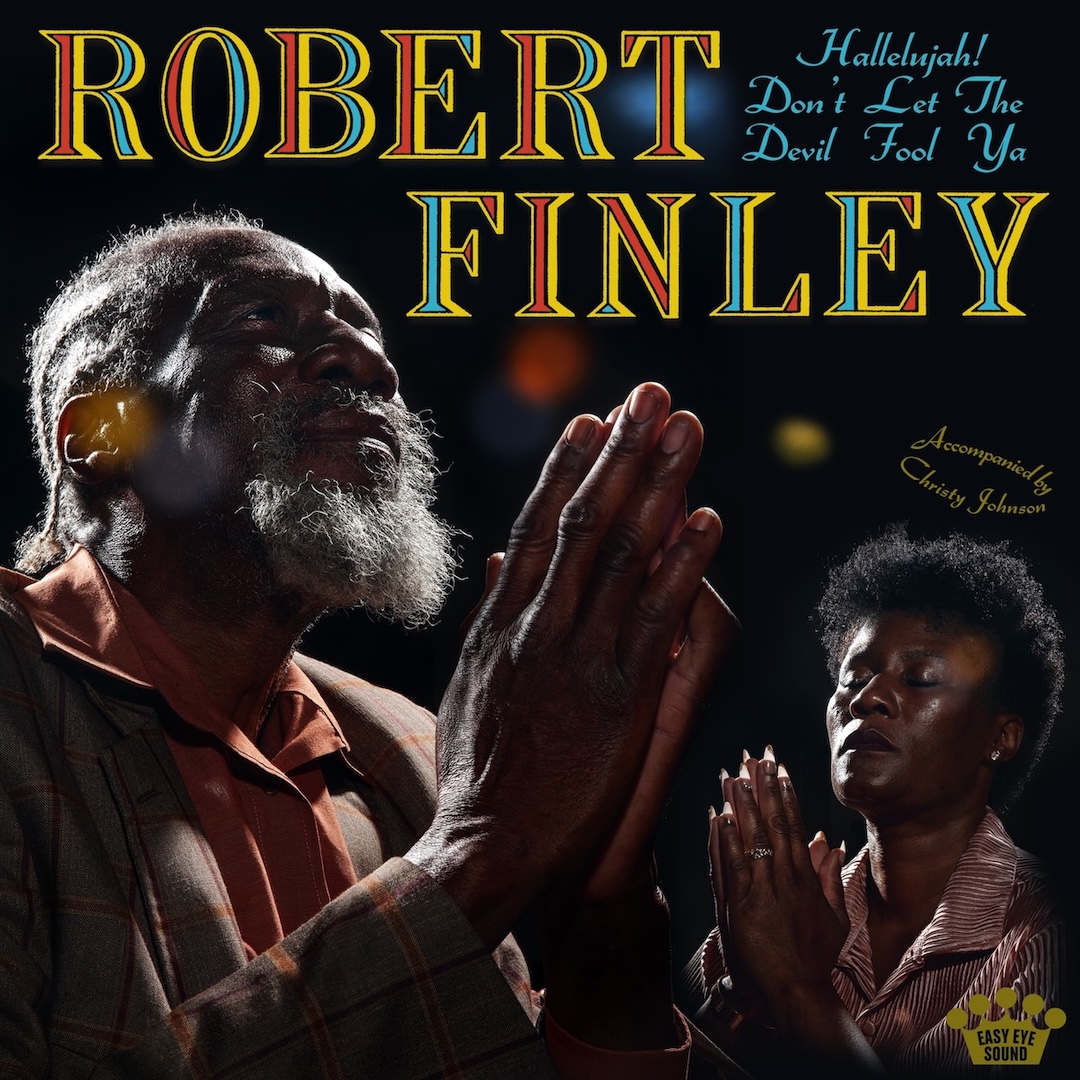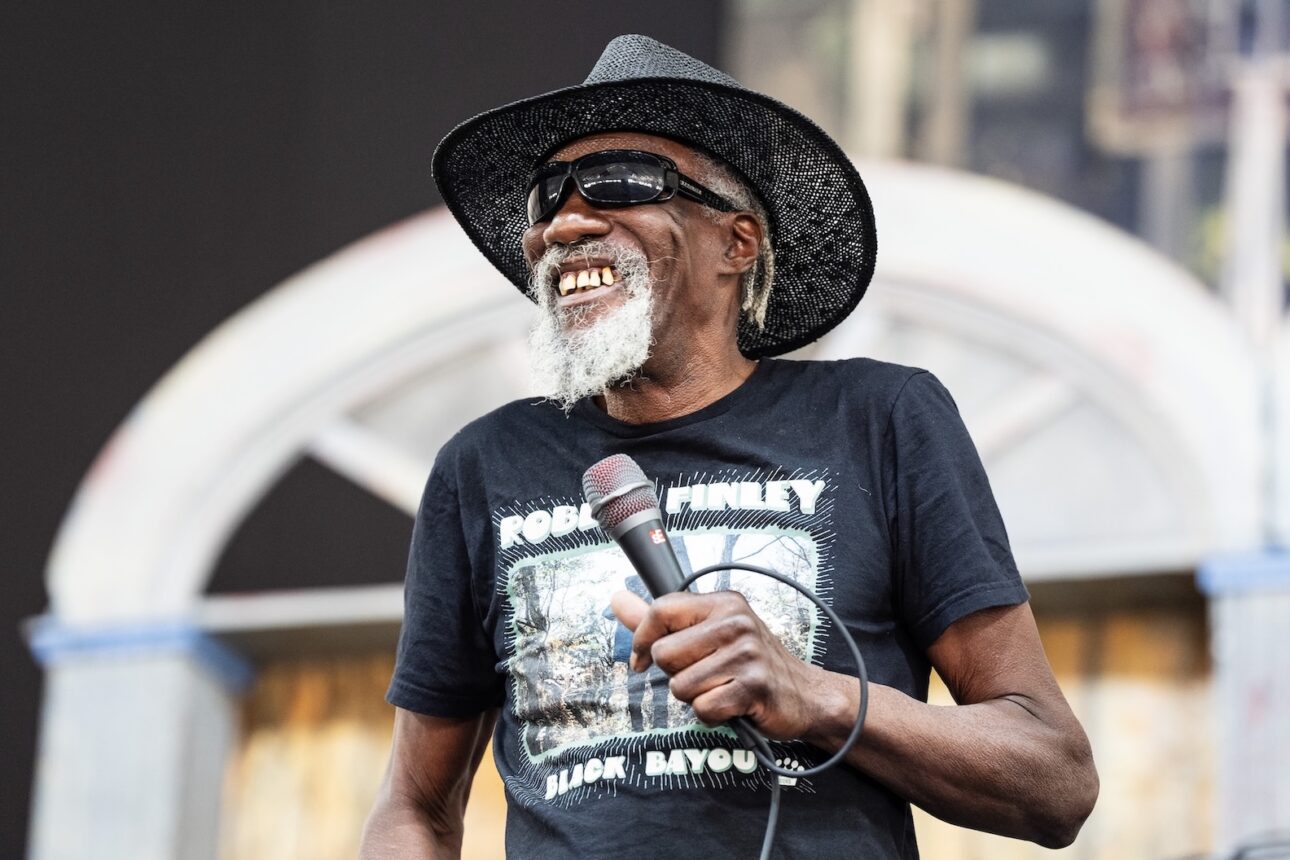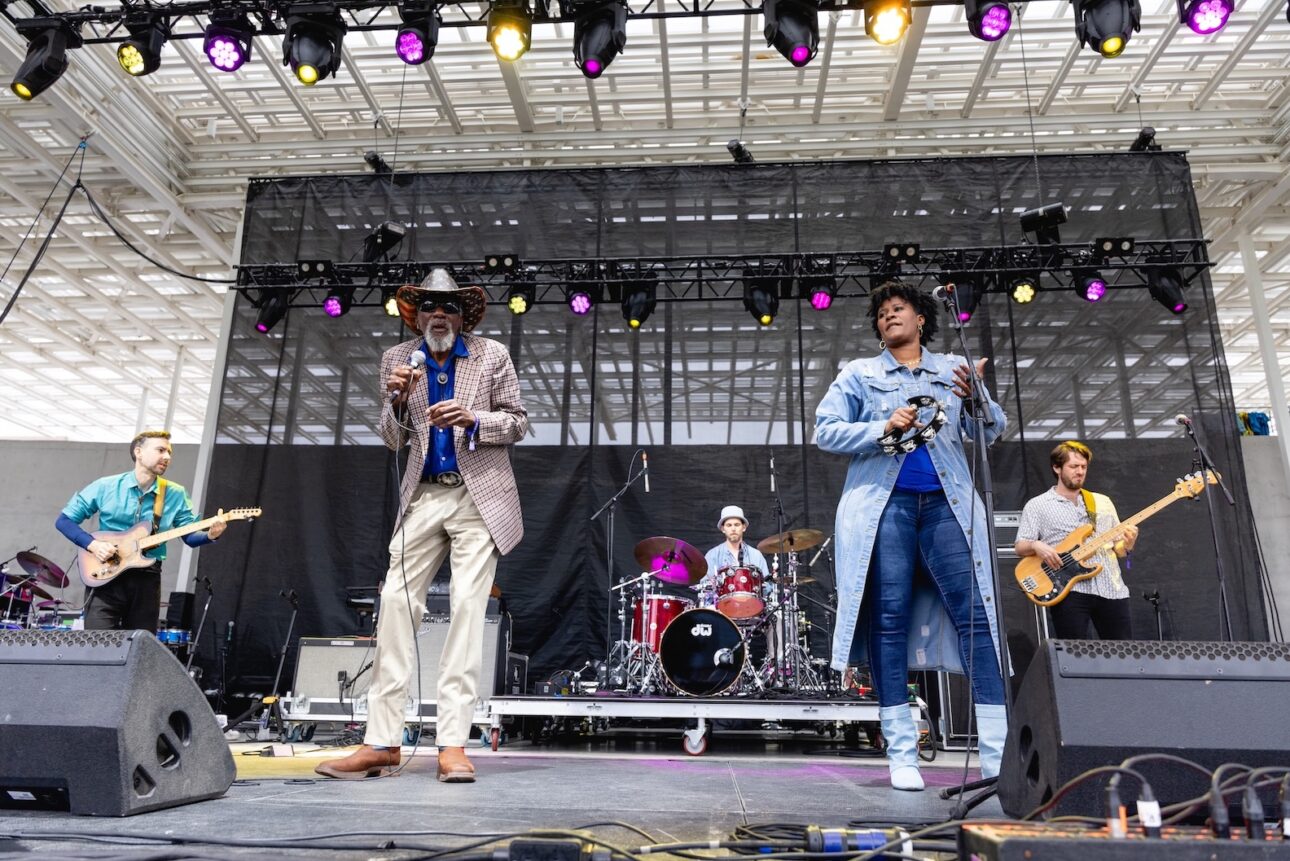He tells me he can walk on water. And for a split second, I believe him.
This is Robert Finley after all, a musician whose career cackles in the face of predictability, and instead redefines the trope of the artist playing the long game. A sharecropper’s son who as a boy missed school to work in the cotton fields, and at 12 purchased a guitar with money his father gave him for shoes, his story is as deep and heartfelt as any centuries-old parable; joining the Army and playing in its band, building a family and working as a carpenter, before that career ceased when he became legally blind due to glaucoma, his music and faith a constant. In 2019 he was chosen to compete on America’s Got Talent, where (as described in my 2021 SPIN cover story) Simon Cowell “got a rightful, earnest booing from the crowd” for not letting Robert advance to the finals.
No matter though, because in an acrobatic trajectory only Robert could pull off, two years later, when Taylor Swift and Olivia Rodrigo ruled the charts, he’d release Sharecropper’s Son, the start of a fruitful producing partnership with Dan Auerbach and easily one of the most lauded projects of 2021.
In 2023, I caught up with Robert again for his then-newest Black Bayou, which I described as “taking all his bluesy swagger up a notch, a bigger sound with heavier grooves,” and later anointed one of the best albums of the year.
“Everybody had to say a prayer before they went to bed,” he says, of growing up in a faith-based family; his father, a church deacon. “We didn’t know we were poor, but we were poor. See, the thing is, we raised our own groceries. We raised our own chickens. We raised our own garden. We never were hungry, but financially poor, yes, we were poor.” His father would listen to the kids to be sure they were saying their prayers, word for word, “all the way up to ‘Amen.’” One day, Robert decided he’d sing the scriptures instead. “I couldn’t get credit for writing because St. John wrote it or St. Peter or somebody…” We joke about one of the saints coming back up in arms about not receiving a residual check. “King David don’t come back [to] get his money.”

Knowing he turned 71 in February, I ask: “How are you’re 70s treating you, Robert?”
“I can’t complain,” he says, his tone always on the upswing. “I turned a backwards flip on my 70th birthday.” I’m audibly surprised and impressed, so he adds: “I turned a couple of them.” For 71, though, they discouraged him from trying it again. I don’t press on, but assume “they” are one of his three daughters or grandchildren. “I don’t know if I should have done it anyhow…” he ponders. Because for as much as he loves his family, Robert Finley does not like being told what he can and cannot do.
And so, with his new album, Hallelujah! Don’t Let The Devil Fool Ya, he’s redefining gospel. With tracks like “Praise Him,” “His Love,” and “I Am A Witness,” it’s undoubtedly a faith-based record—but only as Robert can do it. Contemporary gospel is sometimes perceived as beautiful voices singing bucolic, inspirational songs designed to lift its listener. And then there are the classic greats, like Mahalia Jackson, whose soulful voice would make the most staunch atheist praise God—and her. Robert notes the Staple Singers (who had a No. 1 hit with “I’ll Take You There” in 1972) as a personal inspiration, admitting, when it comes to gospel music, “I love them all.”
But forget all of that for now, because we’re talking about Robert Finley’s gospel, whose opening track off his new album, “I Wanna Thank You,” sparks undeniable Barry White grooves; seconds in you’re already entranced by masterful musicianship. He can’t help it—even Robert Finley’s gospel has swagger.
The album art features Robert, eyes closed with hands in prayer pose, raising them up in worship. To our right is his daughter Christy, also in supplication, her credits (“Accompanied by Christy Johnson”) swirling over her head like a halo. Christy supplies background vocals on the album.
When Robert told Auerbach he wanted to do a gospel album, Auerbach was all for it. “‘I don’t care what you do, just sing what you feel,’” Robert recalls him saying. The album, if defined by its process, seems divinely inspired. According to Robert, by lunchtime they had half the album done. After lunch, the other half. “I never re-doctored or re-did anything,” he tells me. “I just left it like it was.” He credits Auerbach’s ease and openmindedness for the album’s uniqueness. “I like the way Dan does music, because it’s not following no tradition,” Robert says. “If you want to stand out or be remembered, you’ve got to do something different.”
“You don’t fit into a box,” I say.
“They don’t have my size,” is his response.


The day before our interview, he played in church, but the day before that he was honored by his small town of Bernice, Louisiana, with a memorial, an event that obviously, positively warmed his heart. “A lot of people from the town showed up. My grandsons did the performance. It was a great day.”
We chat a bit about success and life, and I ask him: “Has your faith ever been tested?”
“Just about every day,” he says. “It’s always something or somebody that knows just what wrong button to push. This is my motto: I’ll try to help anybody get up, but I’m not going to let nobody pull me down. I don’t think I’m better than nobody, but I don’t think I’m less than nobody because nobody has my DNA but me. Everybody needs to look at it like that, that you’re really special.”
“What’s your advice if someone’s feeling down?” I asked, actually knowing the advice, but wanting to hear it again.
“Go dancing, girl,” he says. “Just go dancing, and you’ll be surprised, you’ll feel so much better.” He says that dancing is the “only medication [he’ll] take.”
At 71, he feels grateful that his success has provided him with the opportunity to help others who need it and that, while unconventional, the timing was exactly right. “If people say, ‘Why wait until [you’re] old to start a career?” I’m like, ‘Everything happens for a reason.’ Maybe I wasn’t mentally prepared to have success at the age of 30. There’s a lot of 25- and 30-year-old guys [who] become millionaires, and then they die broke because they’re not mature enough, they’re used to having things. When you’re used to not having stuff, and then you get all the things, you’re more appreciative. You don’t want to be the prodigal son.”


He ponders how many people, for all they ask of God, have ever said “thank you,” an act, Robert says, takes “courage.”
“That’s all I be wanting is to at least have enough courage to say thank you. That’s me from my point of view. Can you imagine the good Lord, all He do for people, and all He wants you to do is say thank you. Give Him a little pat on the back or whatever. The praises go to Him, but the joy is mine. Glory to God. He can have all that glory, but just give me the joy of knowing that I put a smile on thousands of people’s faces at one time. That’s my reward. Just saying, “Hey, I’m happy and I just made 10,000 people happy.” That’s the joy. That’s why the song says you can’t take my joy. Nobody can take it. They do anything else, but can’t mess with that. That’s mine.
“They say the joy of the Lord is thy strength. Let the haters hate, and the waiters wait, but just keep on pressing on.”
If there’s one thing you can say about Robert Finley: he walks the walk. But can he walk on water? It turns out, yes. Yes he can.
“I can,” he says. “It’s a certain time of year that I walk on water.” I can’t help but laugh, eagerly awaiting the foreseeable punchline. “I have did it. I just don’t do it in the summertime. Watch me this winter, too.
“I’m going to take a video walking on water just to show people I’m not lying.”



